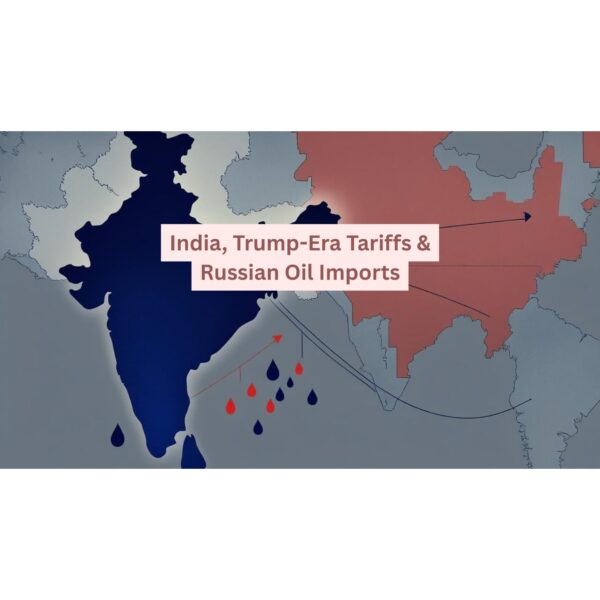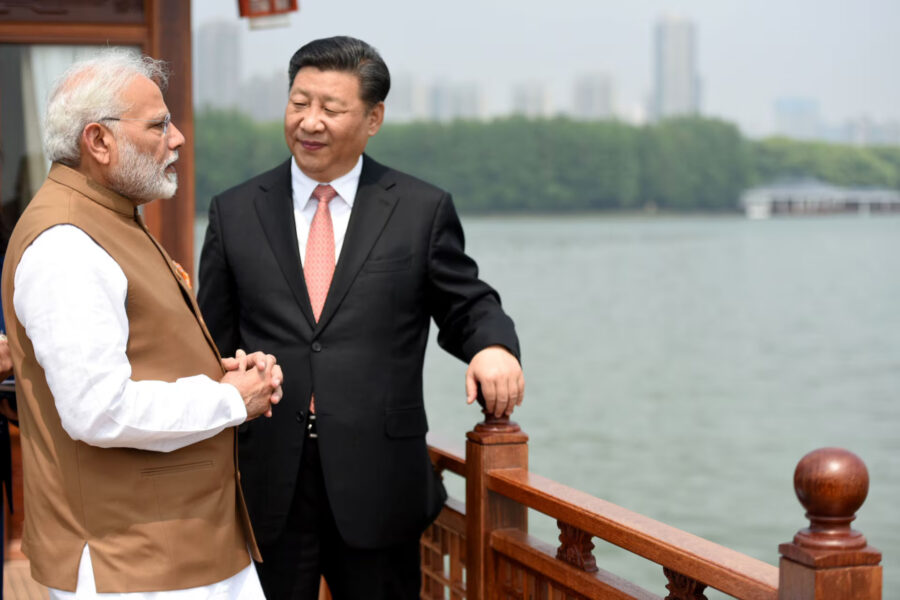India has made a radical step in global trade as it has not stopped or reduced purchasing oil resources from Russia despite the Trump Tariff threat in his American administration to introduce heavy import tariffs. The move has sparked a new round of debates around the world concerning energy independence, geopolitical relationships, and foreign trade policies.
The Trump Tariff Challenge
Trump tariffs have come back to the front burner of foreign trade policy as one of the core instruments that President Donald Trump is deploying in his foreign policy playbook. By creating threats to impose punitive tariffs on other nations trading with Russia, Trump will reduce Russia’s ability to provide financial support for ongoing conflicts. As India is one of the major importers of Russian oil, it has become a target of this new tariff offensive.
Despite these threats, Indian government officials remain unfazed. They argue that energy decisions are based on market pricing, supply reliability, and strategic interests — not external pressure. With long-term contracts in place and significant discounts offered by Russian suppliers, India views continued imports as an economic necessity rather than a political statement.
Economic Priorities Over Political Pressure
India currently sources over one-third of its crude oil from Russia, amounting to roughly 1.75 million barrels per day. The discounted rates offered by Russia are too significant to ignore, especially as India manages inflation and supports domestic growth. Indian refiners and state-run oil companies have not received any directive to reduce or pause Russian imports.
The threat has not affected the Indian government officials. They state that energy policy choices are made on the basis of market prices, levels of supply reliability and strategic interests, not external pressure. Having given long-term contracts and particular discounts to Russian suppliers predetermined, India sees no necessity to reduce imports as a measure needed to fulfil its position.
Missed: Saudi-Led Ukraine Peace Talks Gain Momentum Amid Global Support
India’s Strategic Autonomy
Foreign policy of strategic indifference has long been held in India. It has made realistic and strategic decisions along with those with a sustainability point of view, e.g. energy purchase. India has a long history of good relations in terms of defence and energy with Russia, and this has been despite good relations with the United States.
The officials explain that geopolitical pressures cannot affect energy security on a temporary basis. They assert that the stance of India has nothing to do with the favouring of the other country, but with achieving the economic stability of the 1.4 billion people of India. Under this light, this set of trump tariff threats seems to be diplomatic games rather than actions of deterrence.
Global Implications of the Trump Tariff Policy
The Trump tariff model is more than a punishment of India. It is a lesson to any other country that is dealing with Russia. When faced with the hardest degree, it may crack the international coalitions, see the disruption of supply chains, and cause reprisal moves. The opponents have opposed this move by stating that the use of tariffs as a weapon may make some allies turn against the country and jeopardise partnerships.
Conversely, advocates of the tariff policy consider that it is the economic pressure that Russia needs and also makes countries less enthusiastic towards indirectly helping the economy of Russia. Whether India can pick this tightrope, that is the question.
Impact on Indian Export Sectors
In case the trump tariff is implemented in size, the textiles, IT services, engineering goods, and chemicals industries may have a lot of obstacles in the U.S market. India analysts estimate that Indian exports to the U.S. could be almost 85% have which would be impacted in case of broad-based tariffs. This may become a source of loss of jobs, and the competitiveness and attractiveness of foreign investments as well.
In spite of these risks, India is still propelling its affordable energy. According to government sources, termination of Russian oil supplies is not just going to boost the prices locally, but will also derail long-term developmental strategies like the switch to renewable sources of energy.
The Energy Dilemma
The Middle East suppliers dominated the Indian energy basket before 2022. The Ukraine crisis and subsequent Western sanctions on Russia created the opportunity to get discounted Russian oil. India used the chance with a good opportunity to manage the costs of imports and stabilise domestic prices.
Backtracking on this plan in the light of a trump tariff would not only upset energy supply but also hurt India in negotiating future world agreements. The government feels that international partners and investors require consistency in the energy policy signals.
Conclusion: India’s Calculated Response
The statement that India would not back down in the dispute with trump tariffs sends a clear message that it will take control of its own foreign policy. Although it realises the value of its relationship with the United States, it is not ready to make any compromise in its core economic interests.
The scenario reinforces a bigger world trend happening; emerging economies such as India are exercising their independence even against major powers like any one of the traditional powerhouses. Whether the bomb tariff ever really comes or it is just a bluff, the Indian energy policy would still tend to focus on price, logistics and long-term strategic considerations.
Read More: How Trump’s Reciprocal Tariffs Could Reshape India–U.S. Trade Relations





